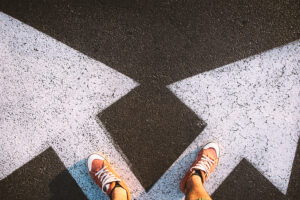By Evangeline T. Capuno
It’s not often that people get lonely during the holidays. Unfortunately, there are those who feel bad and sad.
In The Wind-Up Bird Chronicle, author Haruki Murakami penned these words: “But even so, every now and then I would feel a violent stab of loneliness. The very water I drink, the very air I breathe, would feel like long, sharp needles. The pages of a book in my hands would take on the threatening metallic gleam of razor blades. I could hear the roots of loneliness creeping through me when the world was hushed at four o’clock in the morning.”
Another author, John O’Donohue, wrote in Anam Cara: A Book of Celtic Wisdom, this statement: “There is solitude of suffering, when you go through darkness that is lonely, intense, and terrible, words become powerless to express your pain; what others hear from your words is so distant and different from what you are actually suffering.”
Breathes there a man with a soul so dead so never experienced loneliness?
May Sarton describes loneliness as “the poverty of self.” Charles Bukowski, in Love Is a Dog from Hell, wrote: “There is loneliness in this world so great that you can see it in the slow movement of the hands of a clock.”
Loneliness is not good for your health. As award-winning actress Audrey Hepburn once pointed out: “When you have nobody you can make a cup of tea for, when nobody needs you, that’s when I think life is over.”
If “too much love can kill you,” as a line of a song goes, so does loneliness. In fact, a recent study compared the effects of loneliness to that of obesity. “The research, presented at the American Psychological Association, proved that loneliness and isolation have now been considered as a public health concern as they have caused a number of premature deaths in 300,000 participants of 148 studies,” the article said.
For the uninformed, loneliness in the said study pertains not only in the state of being single but also social isolation and living alone. Virginia Woolf, in “The Waves,” gave us some insight: “Alone, I often fall down into nothingness. I must push my foot stealthily lest I should fall off the edge of the world into nothingness. I have to bang my head against some hard door to call myself back to the body.”
According to the study, those who had greater social connections were recorded to have 50% reduced risk of dying, while death caused by obesity was only 30%. About 70 other studies were done; some 3.4 million people in North America, Europe, Asia and Australia participated in the study. Results echoed the same findings across all studies.
Now, going back to the study of loneliness. Principal author Dr. Julianne Holt-Lunstad of Brigham Young University explained that self-reported feelings of loneliness (subjective) and the state of being socially isolated (objective) are potentially damaging. “People who say they are alone but feel happy are at increased risk of death, as are those who have many social connections but they say they are lonely,” Dr. Holt-Lunstad was quoted as saying.
The report said that social media, technology, and even housing arrangements are the culprits of the increasing rates of loneliness among adolescents and the elderly. “While most feel more ‘connected’ through social media platforms, these, however, are depriving humans of creating substantive and quality relationships due to the lack of physical and meaningful interactions,” the report elucidated.
Among the elderly, housing arrangements play a big role in loneliness. “Their loneliness might be triggered by the death of a spouse, children moving away, loss of network, fear of becoming a burden, fear of going out, and illness (examples: cancer and Alzheimer’s disease),” the report added. It concluded with this statement: “Theories suggest that these findings might be linked with how depression and anxiety are both causes of premature deaths, as loneliness and isolation are two of the symptoms that catalyzes mental illnesses.”
How do you fight loneliness? There was this story of Marc Austin, a 41-year-old afflicted with a heart condition. His illness contributed to feelings of loneliness and low self-confidence. He had a heart attack in 2010, that resulted later in heart failure. Today, he is using a pacemaker to correct an abnormal heart rhythm.
“I was only 37,” he told Heart Matter Magazine, “and the fittest I’d ever been then, so it came as a huge shock. I did feel isolated because of my heart problems, especially being so young. I was living on my own and I didn’t know anyone else my age with a heart condition.”








